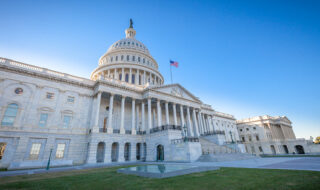Topics:
August 31, 2024 Last Edit: June 5, 2025
Revised Paid Leave Rules Released for Public Comment
- Whether an employer is below the 15-employee reduced tax threshold will be determined by an employer’s “established payroll in 20 or more calendar weeks” during the 12 months ending September 30th. This approach is also used to determine employment threshold in the unpaid Family & Medical Leave (FMLA) law.
- Employers may still have to justify use of “undue hardship” in requesting that an employee avoid scheduling leave during a particular time. The justification process may have a chilling effect on the use of this provision and effectively take away the scheduling right from small employers.
- Employers planning to substitute a private plan may apply beginning April 1, 2025, instead of January 1, 2026. This change shortens significantly the time those employers and their employees pay into the fund (without refund) before an application is approved.
- Employers with private plans may allow “at least 10 weeks of aggregate leave” annually compared to the 12 weeks required of all other employers. This matter previously was unclear.
- Employers will be notified both when an employee applies for paid leave as well as when the leave has been approved or denied. The earlier draft rules required only initial application notification.
State:
Get to know NFIB
NFIB is a member-driven organization advocating on behalf of small and independent businesses nationwide.
Related Articles

June 30, 2025
Get Tips on Website ADA Compliance on the Small Business Rundow…
The Small Business Rundown talks website ADA compliance, the Small Business…
Read More


June 30, 2025
Reminder: Important Tax Changes Went into Effect on July 1
Income, sales & use, and the new “tech tax” are impacted
Read More


June 30, 2025
Florida’s Small Business Community Celebrates Tax Package Bec…
Governor DeSantis signed legislation eliminating the business rent tax
Read More


June 28, 2025
NFIB Key Votes the One Big Beautiful Bill Act in U.S. Senate
NFIB sent a letter to the U.S. Senate naming the One Big Beautiful Bill Act…
Read More







